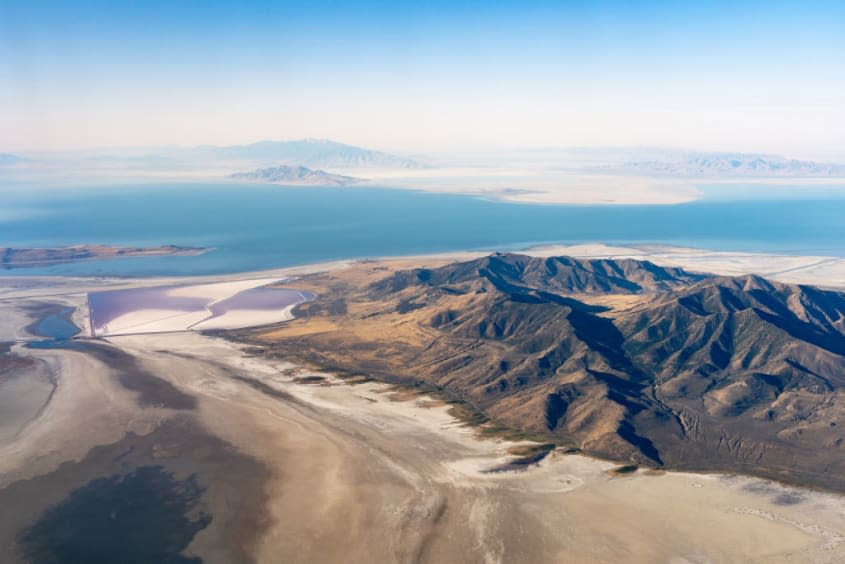Great Salt Lake could become hotbed of toxic air pollution

The Great Salt Lake, located in Utah, is at risk of drying up as it hits its second year in a row with historically low water levels. The lowering levels have also exposed 800 square miles of the lakebed containing soils contaminated with toxic compounds and heavy metals. The soil will turn into dried dust if the lake water evaporates, a potential phenomenon that CNN has named the "Great Toxic Dustbowl."
"This is an ecological disaster that will become a human health disaster," director of the Great Salt Lake Institute at Westminster College Bonnie Baxter told CNN. "We know about dust storms, we know about particulate pollution, we know about heavy metals and how they're bad for humans."
The lake is solely filled by rain, snow, and runoff and does not have any connection to the ocean. Because the water does not flow elsewhere, salt and sediment build over time with nowhere else to go, giving the lake its saltiness. As a result, President Biden signed a bill designating $25 million to research salt lakes and "assess, monitor, and benefit the hydrology of saline lakes in the Great Basin," per Axios.
Scientists say that the lake can be saved, but it will require extensive effort. "Science provides crucial perspective, understanding, and scenarios for policymakers to chart a path forward," says a report by a team of researchers called the Great Salt Lake Strike Team. "Many policy levers can help return the lake to healthy levels."
"We have to get more water to the lake," said Brian Steed, co-chair of the strike team and executive director of the Janet Quinney Lawson Institute for Land, Water, and Air. "For a long time, I don't think that people were sufficiently talking for the lake."
You may also like
Millions to face 'hunger cliff' as emergency SNAP benefits come to an end

